10 Irresistible Seasonings for Spaghetti That’ll Make Your Pasta Sing!
Spaghetti is one of those timeless dishes that can be dressed up or down, from a quick weeknight meal to an elegant dinner party showstopper. But let's face it—spaghetti without the right seasonings for spaghetti is like music without rhythm. It just doesn’t hit right.
In this article, we’re diving into the world of spice and herb magic that transforms your pasta game from “meh” to magnificent! Whether you're a seasoned chef or a home cook with a love for Italian cuisine, this guide will walk you through the best seasonings for spaghetti, how to use them, and where to buy them.
Table of Contents
- Introduction
- Top 10 Seasonings for Spaghetti
- How to Pair Herbs & Spices
- How to Use Spices in Spaghetti
- Buying Guide: Choosing the Best Seasonings
- Frequently Asked Questions
- Conclusion
The Secret Ingredient to Perfect Spaghetti? The Right Seasoning
If you’ve ever wondered why restaurant spaghetti tastes so much better than your homemade version, chances are it’s not just the noodles or the sauce—it’s the seasonings for spaghetti. Fresh herbs, quality spices, and smart combinations can elevate even the simplest marinara to gourmet status.
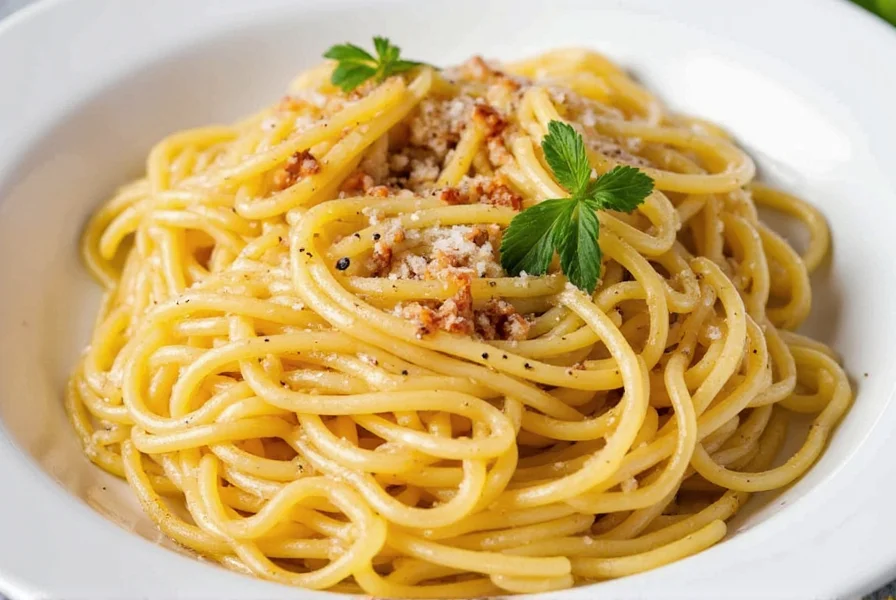
Top 10 Must-Have Seasonings for Spaghetti
Here’s a curated list of the most popular and effective seasonings that bring out the flavor in your spaghetti dishes. We've included a short description and suggested uses for each:
| Seasoning | Description | Flavor Profile | Best For |
|---|---|---|---|
| Basil | Fragrant green herb, fresh or dried | Sweet, slightly peppery | Classic tomato sauces, pesto, garnish |
| Oregano | Robust Mediterranean herb | Earthy, slightly bitter | Marinara, meat sauces, baked pastas |
| Rosemary | Pine-like aroma, strong flavor | Woody, savory | Roasted vegetable pasta, oil-based sauces |
| Thyme | Delicate leaves, subtle earthiness | Mildly minty, herbal | Creamy sauces, herb blends |
| Garlic Powder | Concentrated garlic flavor | Pungent, savory | Oil-based pastas, garlic breads, sautéed bases |
| Crushed Red Pepper Flakes | Dried spicy chili pieces | Spicy, smoky heat | Vodka sauces, arrabbiata, kick-starting flavor |
| Bay Leaf | Dried aromatic leaf | Subtle bitterness, deepens flavor | Slow-cooked sauces, stews |
| Nutmeg | Warm, fragrant spice (freshly grated preferred) | Rich, sweet warmth | Béchamel-based lasagnas, creamy pasta sauces |
| Italian Seasoning Blend | Pre-mixed combo of classic Italian herbs | Well-rounded herb mix | Quick meals, marinades, soups |
| Black Pepper | Freshly ground for maximum punch | Sharp, earthy, slightly floral | Finishing touch on any pasta dish |
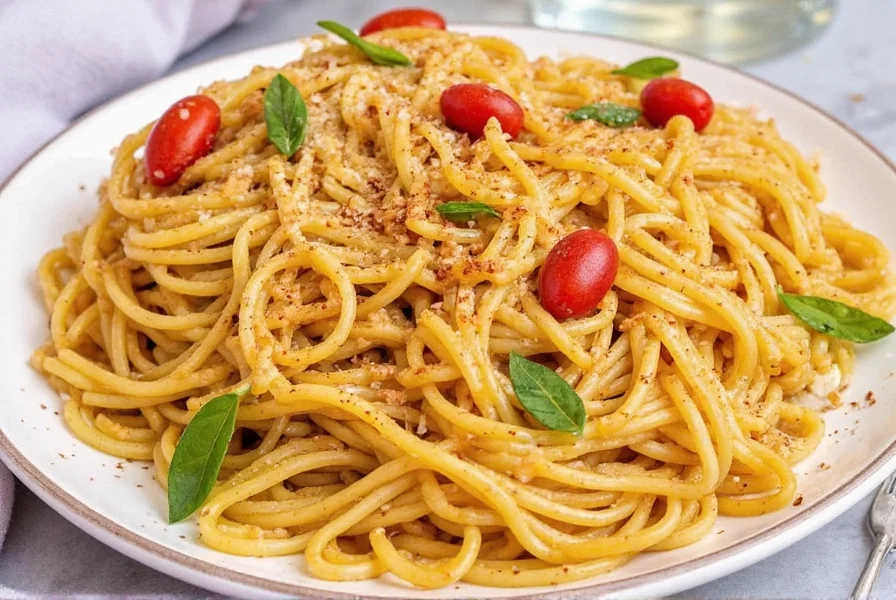
How to Pair Herbs and Spices Like a Pro
The key to making your spaghetti sing lies in combining flavors thoughtfully. Here are some classic and creative pairings that work especially well:
- Basil + Garlic: A match made in heaven, perfect for simple aglio e olio or light tomato sauces.
- Oregano + Crushed Red Pepper: Adds depth and heat to meat sauces or spicy marinara variations.
- Thyme + Nutmeg: Ideal for rich cream sauces and white lasagna-style pastas.
- Bay Leaf + Rosemary: Excellent in slow-simmered ragù or hearty vegetarian pasta dishes.
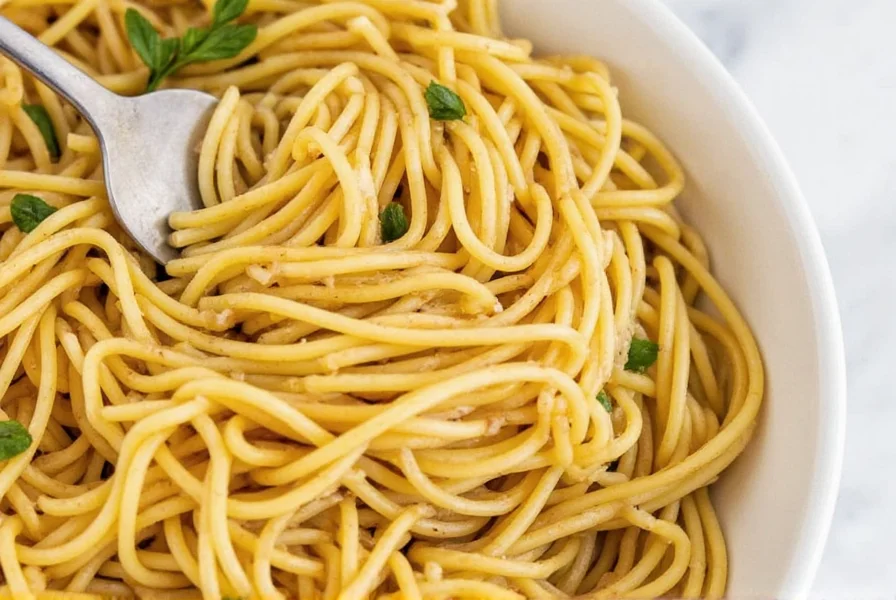
Pro Tips: How to Use Spices in Spaghetti Like a Chef
Using the right seasoning isn't just about sprinkling it over your food. Here are expert-approved tips to make the most out of every pinch:
- Add early when cooking sauces – Whole bay leaves, nutmeg, or whole oregano sprigs should go in during simmering to infuse deeply.
- Toss dry spices with hot pasta water – This helps dissolve salt and spices evenly before mixing with the noodles.
- Finish with fresh herbs – Basil, parsley, or chives add brightness and color when added at the end.
- Toast seeds or whole spices first – Especially useful for cumin or coriander in fusion pasta styles.
- Grate spices fresh – Nutmeg, cinnamon, and black pepper taste far superior when freshly grated rather than pre-ground.
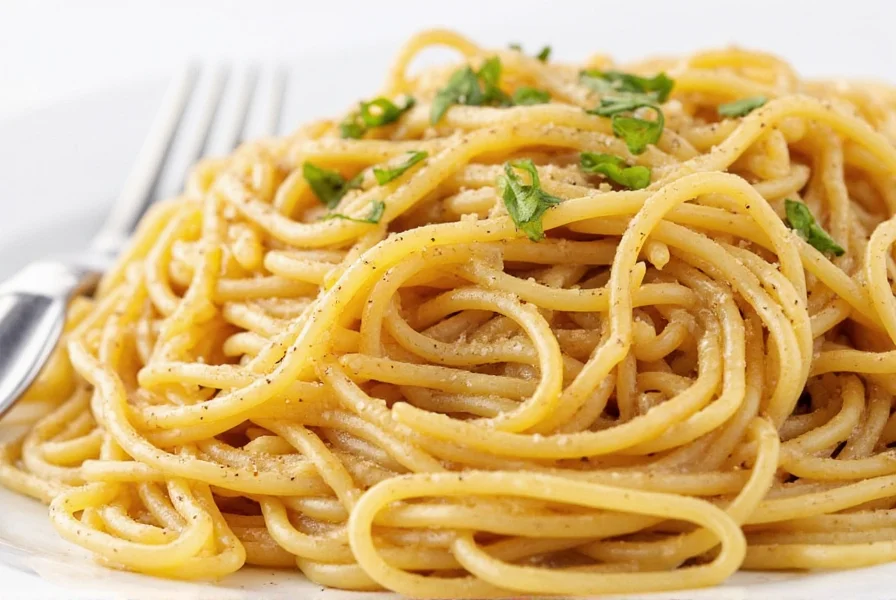
Buying Guide: Choosing the Best Seasonings for Spaghetti
Not all seasonings are created equal. Whether you're shopping online or hitting your local spice aisle, here’s what to look for in the top products:
1. McCormick Culinary Oregano Leaves
- Features: Grown under strict standards for maximum potency
- Advantages: Consistent flavor, great for bulk use
- Use Cases: Classic marinara, meatballs, pizza
- Audience: Restaurants, home cooks, caterers
- Occasions: Everyday cooking, Sunday gravy, holiday dinners
2. Simply Organic Basil (Certified Organic)
- Features: USDA-certified organic, non-GMO, sustainably grown
- Advantages: Retains vibrant aroma and sweetness longer than conventional brands
- Use Cases: Pesto, cold pasta salads, finishing touches
- Audience: Health-conscious families, organic foodies
- Occasions: Summer picnics, weekend brunches, gourmet gift baskets
3. Spice Islands Crushed Red Pepper Flakes
- Features: Bold, consistent heat level; no filler ingredients
- Advantages: Affordable, widely available
- Use Cases: Arrabbiata sauce, chili oil drizzle, spicy vinaigrettes
- Audience: Home chefs, spice lovers, college students
- Occasions: Weekday dinners, tailgate parties, fire-roasted nights
4. Badia Bay Leaves
- Features: Authentic Latin American brand trusted by chefs
- Advantages: Rich flavor, long shelf life
- Use Cases: Slow-cooked sauces, soups, braised meats
- Audience: Latin-American home cooks, fusion chefs
- Occasions: Family gatherings, potlucks, rainy-day comfort food
5. Penzey's Italian Seasoning
- Features: High-quality, hand-blended mix of classic herbs
- Advantages: Balanced flavor, minimal additives
- Use Cases: Marinara, sausage pasta, roasted veggies
- Audience: Serious home cooks, culinary gift buyers
- Occasions: Holiday meals, themed dinner parties, DIY pasta kits
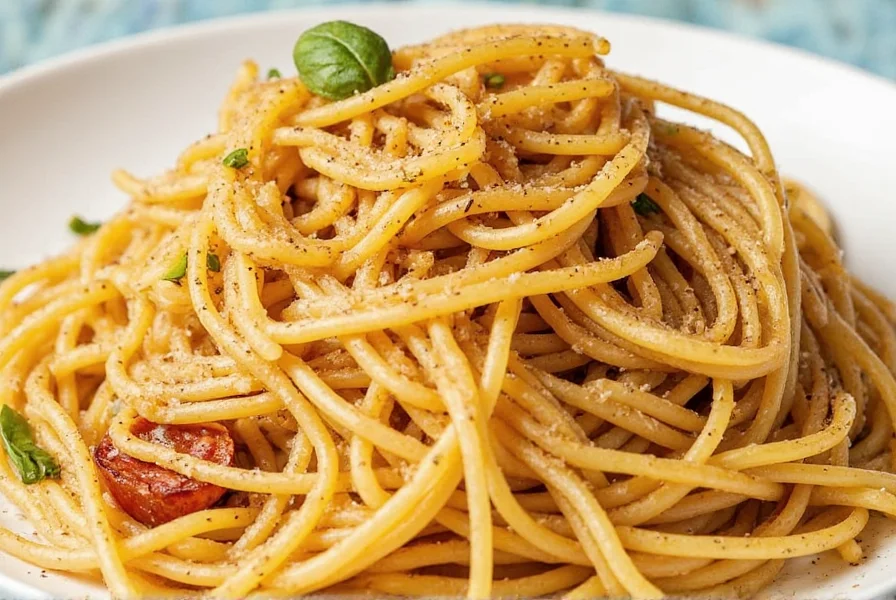
FAQ: All You Need to Know About Seasonings for Spaghetti
Q: What is the most essential seasoning for spaghetti?
A: Salt is the absolute foundation. Without proper salting of pasta water and sauce, other spices won’t shine.
Q: Should I use fresh or dried herbs?
A: Both have their place. Dried herbs are robust and ideal for simmered sauces, while fresh herbs add brightness as a finishing touch.
Q: Can I substitute spices in pasta recipes?
A: Yes! Basil can be swapped with parsley, oregano with thyme, and crushed red pepper can stand in for chili powder in a pinch.
Q: Are pre-made seasoning mixes worth it?
A: If you’re short on time, absolutely! Just read the labels—some mixes contain fillers or preservatives.
Final Bites: Elevate Your Spaghetti Game with These Seasonings
Whether you're stirring up a traditional marinara or experimenting with global twists, using the right seasonings for spaghetti makes all the difference. From classic basil to bold red pepper flakes, these flavors open doors to new culinary adventures every time you boil a pot of pasta.
Now go ahead—grab those spices, dust off that saucepan, and let your spaghetti sing its own flavor-packed song. Because pasta night deserves to be unforgettable.
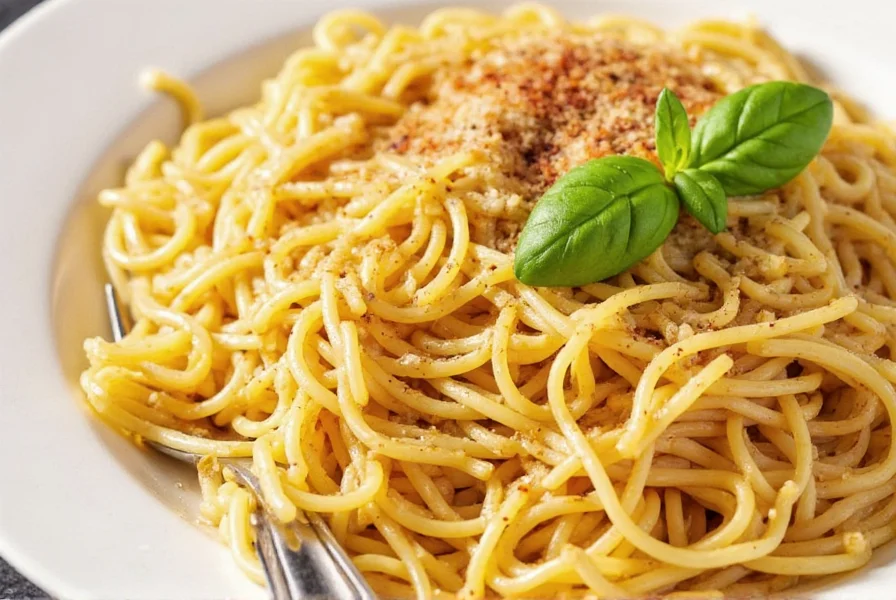

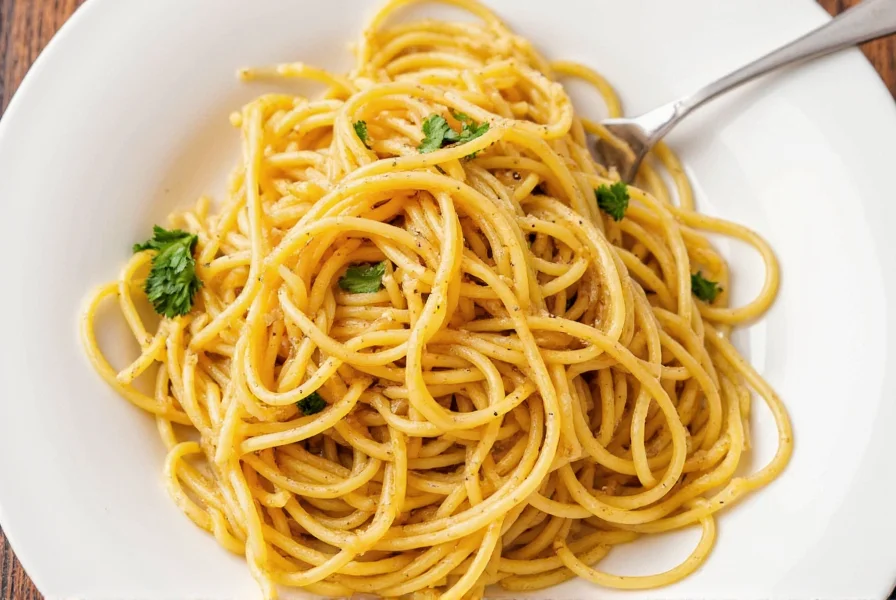









 浙公网安备
33010002000092号
浙公网安备
33010002000092号 浙B2-20120091-4
浙B2-20120091-4